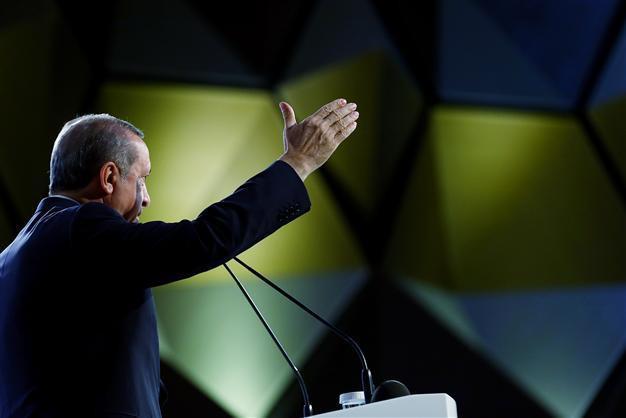Bring your documents, Erdoğan calls on Armenian diaspora over 1915 massacres
ANKARA

Turkish President Recep Tayyip Erdoğan speaks while inaugurating an exhibition on World War I in the Ottoman Archive Facility in Istanbul on March 19. AA photo
Turkish President Recep Tayyip Erdoğan has challenged the Armenian diaspora to come up with “documents” to resolve the intractable political issue surrounding the mass killings of Ottoman Armenians 100 years ago.
“O, the Armenian diaspora, our documents are here. Whatever documents you have, bring them,” Erdoğan said while inaugurating an exhibition on World War I in the Ottoman Archive Facility in Istanbul on March 19.
Armenia says up to 1.5 million Ottoman Armenians were killed in a genocide starting in 1915. Turkey denies that the deaths amounted to genocide, saying the death toll of Armenians killed during mass deportations has been inflated and that those killed in 1915 and 1916 were victims of general unrest during World War I.
“The Armenian diaspora is trying to instill hatred against Turkey everywhere in the world through campaigns on genocide claims,” Erdoğan said, stressing that such efforts had intensified in the centennial anniversary of 1915.
“Like in every era in the history, pains and tragedies were experienced during the years of the great war. Armenians were not the only people affected by them,” Turkey’s president said.
While around 20 countries recognize the 1915 events as genocide, some others, including Germany and Israel, stress that it is the duty of historians, not politicians, to issue a verdict on the subject.
“The greatest massacres targeting Muslims in the Balkans and in Caucasia happened in the same period. In Anatolia, there were hundreds of thousands of people who were harmed by Armenians, as many as Armenians were harmed,” he said.
Erdoğan also said Turkey opened “millions of classified documents in its archives” to public, urging the Armenian diaspora and Yerevan, as well as third countries, to do the same for historians to “find the truth.”
